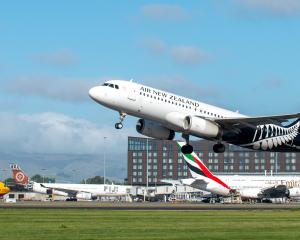Businesses say the Government’s plan to increase the minimum wages will have an impact on costs.
Last week the Government announced a plan to increase the minimum wage by $1.50 an hour.
Prime Minister Chris Hipkins announced the move to a new rate of $22.70 per hour from April 1 as part of a raft of changes as the Government resets its agenda heading into the general election in October.

He said his business paid above minimum wage, but the Government’s plan to increase the benchmark would provide some gains for those who earned at that pay rate.
He said all the costs for running a business such as materials, goods, rent and wages were going up and had an impact on the profitability and margins of all businesses.
It was difficult to find specialised workers such as chefs but Dunedin had a good student market, which helped in filling jobs such as kitchen hands, Mr Scully said.
Motel Association president Pete Firns said the wage hikes were expected and need to be complied with.
The Great King Motel operator said it would affect the cost of running a business.
Retailers said it was becoming harder to maintain pay relativities for staff with continued increases to the minimum wage.
The hike is in line with inflation but still trails the living wage, which is $23.65.
Retail NZ chief executive Greg Harford said retailers were disappointed by the move.
"Across the retail sector workers are, on average, already earning $26.65 an hour or north of that.
"The minimum wage is going to put extra pressure on that because employers will typically be trying to maintain relativities between senior staff and those who are less experienced and more junior."
Mr Harford said if there was any year to pause the minimum wage hike, 2023 was the year to do it.
"There are going to be real-world impacts from the decision to increase the minimum wage by such a large amount.
"Many small business owners out there don’t even earn minimum wage themselves out of their own business."
A snap poll conducted by Retail NZ showed 69% of business owners would increase prices in response to the minimum wage hike, 57% would reduce the hours of work available to their teams and 41% were planning to reduce staff numbers.
Mr Harford said the Government had other ways to help resolve the cost-of-living crisis.
"It could look at the level of GST, which is a hidden cost on the value of everything we buy.
"It could also look to reduce tax brackets to help people with the cost of living.
"It’s really pretty unfair that the burden of the economic situation is falling on the private sector when it is employing people." — Additional reporting RNZ











